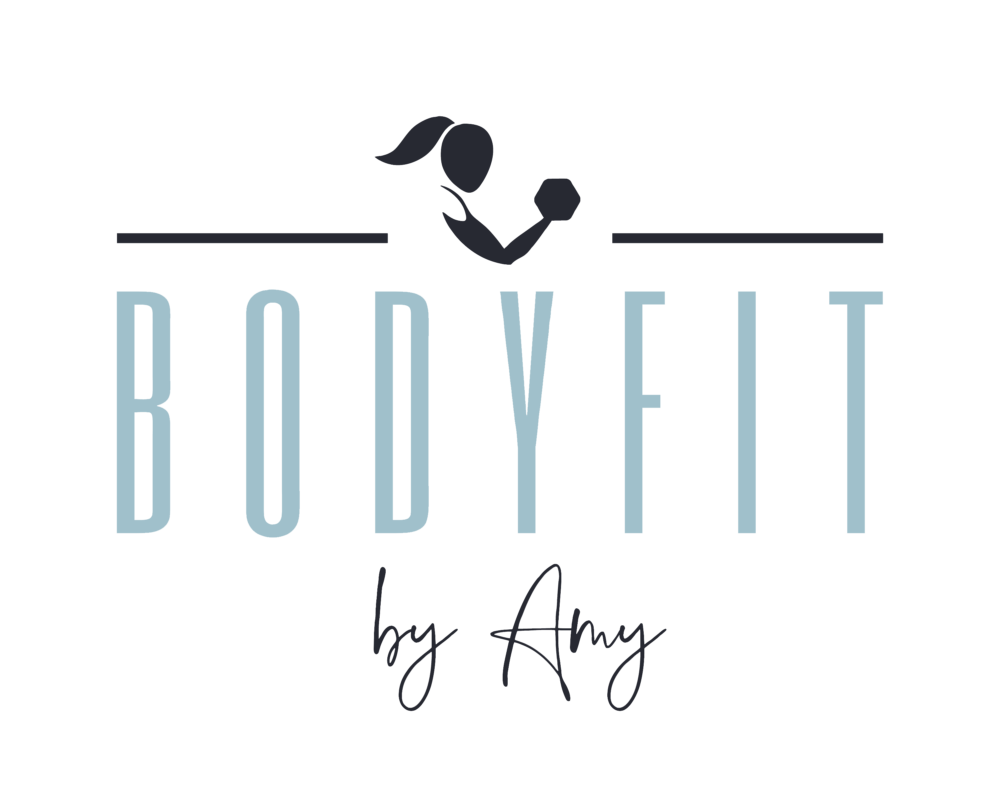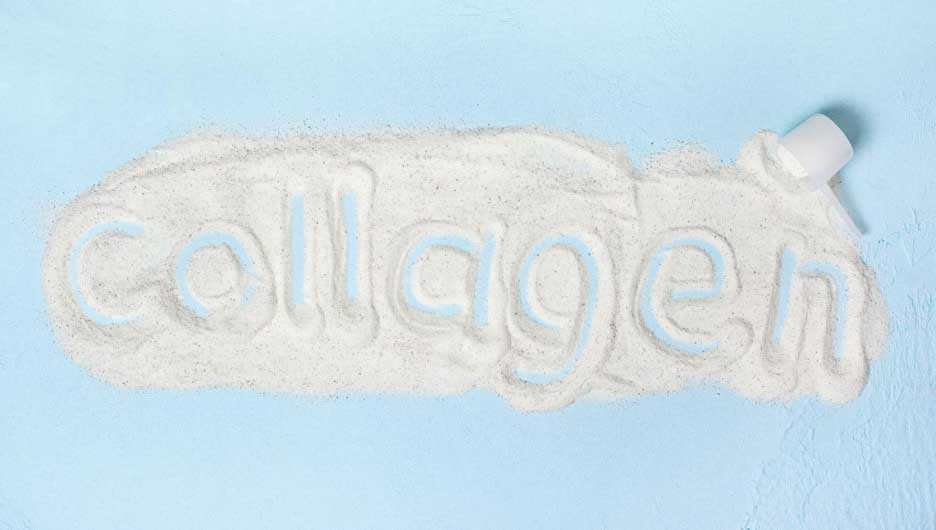Oh, aging. It happens to all of us – wrinkles, fine lines, dryness, dullness, and loss of firmness in our skin. While these changes are completely normal, many of us struggle with our changing appearance as we age. Desperate to find ways to remain youthful, many people turn to cosmetic procedures, expensive face products, fancy facials, and, of course, supplements. One supplement that has taken the beauty industry by storm is collagen. Sales of collagen supplements increased by almost 60% just from 2019 to 2020. Crazy, right? The collagen industry is expected to become a billion-dollar industry by 2026, so it is worth exploring whether you should be spending your hard-earned money on this trendy supplement. I mean, is this really the fountain of youth, or is it an edible hoax?
First of all, what is collagen?
Excluding water and fat, the human body is made up of many different proteins. Collagen is one of those proteins, and it makes up about 30% of all proteins in the human body. A good way to think of collagen is as the “glue” that holds our bodies together.
Inside of our bodies, collagen makes up a good chunk of your dermis -that’s the deeper layer of your skin. It’s also found in cartilage, which is a soft, gel-like padding that cushions our joints to allow for painless movement. Collagen can also be found just about everywhere else – coating your organs, inside of your bones, tendons – and, even, on the surface of your eyes Unfortunately, as we age, our natural collagen levels decrease about 1% each year, starting in our mid-twenties. It is because of this decrease in collagen that many people who never needed reading glasses end up relying on them by middle-age. Boo!
Since collagen makes up a good chunk of your skin, the natural decrease of collagen may lead to a loss of firmness. As this happens, you may notice that your skin is less supple and begins to sag or sink in a little. To make matters worse, the loss of collagen leads to dehydration and thinning of the skin, which makes wrinkles and fine lines more visible. Ugh! It’s no wonder that when collagen supplements came around, everyone jumped on it right away! If we lose collagen naturally, why not pump our bodies with some external collagen in the form of a supplement to get back some of what we are losing. That logic makes sense, but does it work? Hint: it’s likely!
Where do collagen supplements come from?
Remember, collagen is a naturally occurring protein found in the human body. It is also naturally found in animals, so this is where your collagen supplements come from. Most supplements on the market include collagen from bovine, meaning it’s derived from cows (sometimes bison or buffalo), or marine collagen, meaning it’s derived from fish. Marine collagen is a good option for pescatarians who want to try collagen but don’t want to consume other animal products.
What about vegan collagen supplements?
Since collagen comes from the tissues of animals, there is -NO- such thing as vegan collagen. Anytime you see a vegan collagen supplement, please know there is no collagen in there. Instead, these vegan collagen supplements include nutrients that help your body naturally produce collagen, such as Vitamin C.
Since collagen is a protein, can it replace my protein powder?
Not quite. Even though collagen is technically a protein, it is an incomplete protein (meaning it doesn’t have all the amino acids that a piece of chicken would). The differences between the protein in collagen and the protein in your protein powder are in the amino acid composition. All proteins are made up of amino acids, but different proteins may have different amino acid compositions. Collagen has a unique makeup of amino acids, making it a different type of protein than a piece of chicken or protein powder. When taking collagen, I like to view it as a boost, but not as the main protein source or a replacement for other proteins.
The collagen supplement container says hydrolyzed or peptides – what does that mean?
Collagen cannot be absorbed in its whole, natural form. In order to be absorbed by the human body, whole collagen needs to be hydrolyzed, which means “broken down.” Once broken down or hydrolyzed, it turns into peptides. This is why you may notice that your collagen supplement is sold as hydrolyzed collagen, collagen hydrolyzates, or collagen peptides – all of these terms mean the same thing, and it means that this form of collagen CAN be absorbed by your body.
What about type I, type II, and type III collagen supplements?
There are 28 different types of collagen in the human body, all doing different things. However, a whopping 90% of the collagen in the body consists of types I, II, and III. Most collagen supplements include Type I and Type III – NOT type II. And it is important to note what each of the types means since they have different functions and offer different benefits.
- Type I is the one that provides structure to your skin, tendons, and bones — this is the one that everyone cares about for beauty and anti-aging.
- Type II is particularly found in elastic cartilage — your nose, ears, and in between the joints.
- Type III is often found alongside type I collagen – this one supports the structure of muscles, organs, and arteries.
You may have heard that collagen supplements are good for anti-aging benefits *and* joint health, but most of the collagen supplements on the market only have type I collagen and type III collagen. This means that most supplements could help with anti-aging, but not the joints, since most of that support would come from collagen type II.
Most of the promising research done on joint health and collagen has focused on collagen type II. If joint health is your main focus, you may want to consider a collagen type II supplement. Many people like to cover all their bases and take a collagen supplement (like this one) alongside a type II collagen supplement.
Does the BodyFit dietitian take a collagen supplement?
Yes! I don’t expect miracles, but the research is promising, and I like the idea of an extra collagen boost. Since it’s naturally occurring in the body and in animals, it’s not a mysterious substance, and there are no significant side effects – some people do report mild stomach upset, but that’s rare.
Is a collagen supplement required?
A collagen supplement is not required for you to be healthy. The body can use other proteins to make collagen, and you can get collagen from food sources like bone broth. A collagen supplement can be a helpful boost to help slow the natural decline, but it is expensive, so it’s okay if it doesn’t fit into your budget.
How much collagen should I take? And, what should I add it to?
The dosage recommendations are all over the place, but most experts agree that 5 – 10 grams of collagen per day is appropriate. I usually take one scoop of vital proteins, which contains 10 grams. Collagen can be added to coffee or smoothies, but you can add it to literally anything – chili, stews, soups, casseroles, oatmeal, pudding, water, tea, tacos – the options are endless!
Can collagen get destroyed in coffee or other hot beverages?
Nope! Collagen begins to degrade at temperatures above 570 degrees Fahrenheit or 300 degrees Celsius, so unless your coffee is hotter than your max oven temperature, there is no need to worry!
The bottom line – collagen may help, but it is NO magic bullet!
Taking collagen will not make you look like a 21-year-old (unless you are 21!), and it will not give you the ability to become a gymnast all of a sudden. For many people, it’s tough to notice the benefits – collagen may help slow the formation of new wrinkles, so you may have fewer wrinkles than you would have had if you weren’t taking collagen, but by no means is it a powder that will erase all lines and wrinkles and replace all suppleness and perkiness on your face. In the end, aging, joint support, and wrinkle development involve much more than just taking a collagen supplement. Sleep, stress, diet, sunscreen usage, and hydration also play an important role in the health and appearance of your skin.





Such a helpful arrival. Thank you so much for clarifying a lot of questions I had about collagen!
Also I wanted to say I loved doing the barre mini band work out that was somewhat recently posted!
Glad you found it helpful, Rachel! I’ll let Amy know you loved the barre mini band! 🙂
A useful, interesting and informative article, which answers all the key questions about collagen. Thank you Vivian.
You are most welcome! So glad you found it helpful! 🙂
Lots of good information!
Thank you for explaining the benefits of collagen.
You are most welcome! So glad you found it informative! 🙂
This is so informative! I’ve been taking the collagen supplement that you linked (in the big, blue tub) but I didn’t realize it’s not benefiting my joints. I definitely need the joint support. Thanks for the info!
Thank you for the clear and concise article. I feel more informed and have a better understanding. Thank you so much!
Great article. Which is the best collagen product to use?
Hi Christine. It depend on your needs. I’ve been taking collagen from Biocell Collagen by Vitality Nutritionals for my skin, hair and nails. This collagen was highly recommended by my cosmetologist. So first of all I need to have to make test, to consult with your doctor. Because the market of this products is huge, so you need to understand what for do you need it.
We (Amy and I) love Unflavored Vital Proteins (the blue container)! Also, Dose & CO Unflavored is another good brand! 😉
Dont they come in pills? Why add a powder to ur coffee?
Yep, they do come in pills too. Either one is fine (powder or pills) – totally a personal choice! The powder can be added to coffee, smoothies, sauces, etc. It dissolves quickly and is flavorless. The main reason for taking the powder is for people that don’t love taking pills. You also need more pills in order to get enough collagen. For collagen capsules, you typically need to take 6 capsules with 8 oz. of water each day, whereas, the collagen powder, requires adding 1-2 scoops to food (like sweets or sauces) or beverages (like smoothies, coffee, or water).
How can you tell which collagen supplement is the best option? Are all collagen supplements created equally or do you get what you pay for?
I would make sure to get hydrolyzed collagen, collagen hydrolyzates, or collagen peptides. I recommend unflavored to avoid unnecessary added sugars. If you are interested in joint health, I recommend collagen type II. If skin health is the main goal, then choose collagen types I and III. We (Amy and I) love Unflavored Vital Proteins (the blue container)! Also, Dose & CO Unflavored is another good brand! Vital Proteins also has a Type II supplement (in a pink/red container). Many people do both to cover all their bases! Hope this helps! 😉
I personally am a big fan of COL NATUR, there’s a lot of magnesium in also and it’s great for the joints.
So great you’ve found a product you love! 🙂
Thank you Vivian and Amy.
Vivian, your explanation about collagen supplements was very informative and easy to understand.
Is it correct that ‘topical’ placement of collagen containing products ( beauty creams etc) is not effective, that collagen supplements needs to be absorbed ( hydrolyzed or peptide form )?
That is correct! All of those topical collagen creams are mostly a play on marketing for people to purchase them, but no, they do not get absorbed!